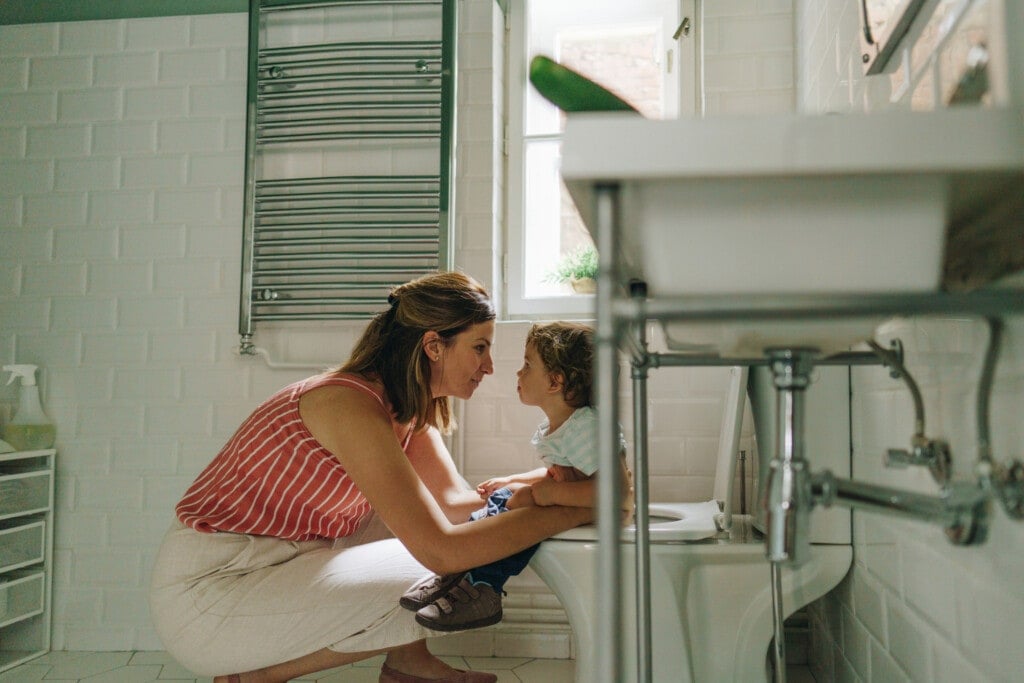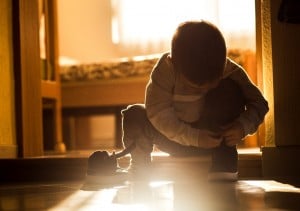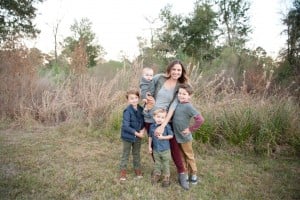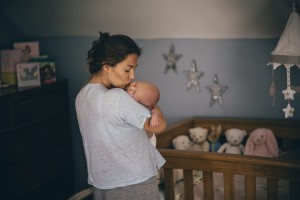Trigger Warning: Although I won’t be exploring stories or examples of child abuse, the topic centers around child protection. If this topic of discussion is uncomfortable, this article might not be suitable for you. Please seek support and do not feel pressured to continue reading.
Wee Wee, Winky, Dingle, Flower, Pee Pee, Hooha, Willy, Front Bum. These are just some of the nicknames parents give to their children’s private parts. And why do our children insist on having loud and public discussions about their genitals? Well, they have no shame about their bodies until we teach them to be embarrassed. When it comes to conversations with our children, public conversations, it seems that parents aren’t all that comfortable using the anatomical terms: penis and vagina/vulva. Or, some parents avoid those topics of conversation altogether. But why?
It can arise from generational embarrassment when sexuality or discussing genitals was taboo. This embarrassment tends to pass down the generations. If our parents didn’t use the correct terms, we in the next generation grow up referring to private parts with all sorts of euphemisms. Creating nicknames continues the cycle of embarrassment because we lend shame when we don’t use the “real” words. We act like the accurate word is something to avoid or be secretive about.
What’s the harm in using words like “pee-pee”?
It’s all about safety and body positivity. Talking to children from a young age about their bodies and using the correct words for body parts helps them protect themselves. Children who are confident and empowered to talk about their bodies are less likely to be abused. This is because if we give our children the words to talk about their bodies and understand personal boundaries and safety, they have the best chance to communicate with adults who care for them. Children who are encouraged to speak about their bodies and feel comfortable doing so are more likely to communicate their concerns when it really matters. This helps to keep them safe.3
Children who use the incorrect terminology for their genitals may be misunderstood. Or they may feel uncomfortable raising the topic at all. However, when children use correct words like penis, vagina, or vulva, they signal to safe adults that they are worried or uncomfortable about something. Studies show that they are also less likely to be abused because it signals to potential abusers that this is a confident, empowered child who has been educated about safety and sexuality (and are avoided by some abusers).3
There are also the body positivity and health aspects.2 If we use nicknames for our genitals and feel shameful using the anatomically correct terms as young children or even publicly talking about them, this can translate into avoidance and further shame in adolescence. Our teens’ bodies are changing (hello puberty), and they can become even more uncomfortable about their newly changing bodies. This can also lead to a lack of self-esteem about their appearance. And also a lack of confidence to self-advocate or talk about their bodies with their doctor. This is a problem for both physical and mental well-being.1,3
How can we help our children stay safe?
Talking about their private parts (using correct words), consent, and safe adults are key to helping your child stay safe. Here are some tips:
Use Correct Terminology
From a very early age, we should use the correct language for genitals: penis and vulva/vagina (vulva is the outside, and vagina is the internal canal). The more we speak it, the more children will recognize the words and use them correctly.
From birth to 18 months, we should focus on teaching the correct name. Use the words penis, vagina, and vulva in the same tone as ear, knee, and toes. It should be a bland, neutral tone. Giggling or awkwardness just builds fear and shame. Can you imagine someone whispering and giggling about calling their ear by its correct term? No, so we want to normalize calling genitals by their proper name in the same way.
Teach Consent
From 18 months to five years, we should start talking about consent. This conversation should include the idea that some body parts are private. It should also include how to say no if they feel uncomfortable.
As parents, we might need to provide personal physical care for our children at this young age, like changing diapers or helping them clean up. However, we can start the conversations about consent very early on. You can narrate while you help your child clean by saying, “I just need to change your diaper now and help get you clean. It will mean I have to help clean your penis/vagina. I’m just going to take your diaper off now.” Diaper changes are not something we can negotiate. We need to help our children get clean. Involving them in the process allows them to feel a part of the process, not just accepting of something being done to their bodies. This simple narration helps set the tone for body autonomy and early conversations about consent.
Older children who no longer need your help to look after their bodies can start doing independent self-care like wiping and washing themselves. We can also introduce them to the bathing suit analogy. Anything under your bathing suit is private and shouldn’t be touched or looked at by anyone but you or an adult who has been identified as safe.
Identify Safe Adults
As children get older, we also need to teach them about safe adults with whom they can communicate if they feel unsafe. We should encourage them to talk to us or a safe adult if someone has touched their private parts, asked them to look at them, or if they have been asked to touch someone else’s private parts.1 Safe adults are usually identified as parents and doctors (but only if parents are present). These are generally the only safe adults we should have on the list, but there can be exceptions if your child receives care outside the home that requires physical touch.
Perhaps we have our own hang-ups or body shame that makes it embarrassing to talk about genitals or these topics. However, we must persist so that we can support this next generation to be body-wise to keep them safe.






























